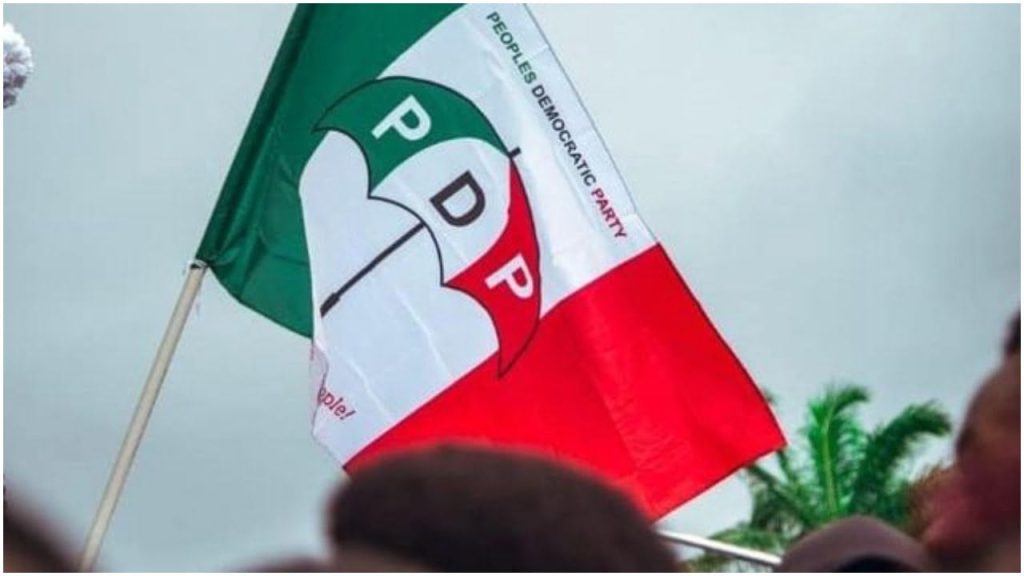Paragraph 1: Legal Intervention Halts PDP South-South Zonal Congress
A Rivers State High Court in Port Harcourt has intervened in the internal affairs of the Peoples Democratic Party (PDP), issuing an interim injunction that effectively halted the party’s planned South-South Zonal Congress. The congress, originally scheduled for February 22, 2025, in Calabar, Cross River State, was put on hold following a lawsuit filed by two PDP members from Rivers State, Tonu Uchechukwu Ejiogu and Field Nkor. The defendants named in the suit were the PDP itself and its National Vice Chairman for the South-South zone, Dan Orbih. This legal action injected uncertainty into the party’s organizational structure and raised questions about the future direction of the South-South zone.
Paragraph 2: Judicial Order and Implications for Party Activities
Presiding Justice G.V. Obomanu granted the interim injunction after considering arguments presented by the claimants’ counsel, Emeka D.A. Ojoko. The court order specifically restrained the PDP, Dan Orbih, and their representatives from proceeding with the congress until the court could fully hear and determine the motion for an interlocutory injunction. This effectively froze all preparations for the zonal congress, leaving the party in a state of suspended animation regarding its leadership and organizational structure in the South-South. The court’s decision emphasized the importance of due process and legal adherence within the party’s internal affairs.
Paragraph 3: Maintaining Status Quo and Ensuring Due Process
Justice Obomanu’s order underscored the need to preserve the existing state of affairs within the PDP’s South-South zone. The court directed all parties to maintain the status quo as it existed on February 20, 2025, effectively rolling back any actions taken in preparation for the now-postponed congress. This ensured that no undue advantage was gained or lost by any party during the period of legal deliberation. The court’s emphasis on maintaining the status quo reflected a commitment to fairness and transparency within the party’s internal processes.
Paragraph 4: Substituted Service and Access to Justice
Recognizing the potential difficulties in formally serving legal documents on the defendants, the court granted the claimants permission to employ substituted service. This allowed them to notify the PDP and Dan Orbih of the legal proceedings by posting notices at the party’s South-South Zonal Headquarters in Port Harcourt and publishing the notice in a widely circulated national newspaper. This provision ensured that the defendants received proper notification of the lawsuit, even if direct personal service proved challenging. The court’s accommodation for substituted service demonstrated a commitment to ensuring access to justice for all parties involved.
Paragraph 5: The Broader Context of Intra-Party Disputes
This legal challenge within the PDP highlights the complexities and potential for conflict within political parties, particularly during periods of organizational restructuring or leadership transitions. Zonal congresses often serve as platforms for electing key party officials and setting strategic directions. Thus, disputes over the conduct of such congresses can have significant implications for the balance of power and overall direction of a political party. The legal battle within the PDP’s South-South zone reflects the high stakes involved in these internal party processes.
Paragraph 6: Future Proceedings and Potential Outcomes
The Rivers State High Court adjourned the case to February 28, 2025, for a hearing on the motion for an interlocutory injunction. This upcoming hearing will provide a crucial opportunity for both sides to present their arguments and for the court to determine whether the temporary suspension of the South-South Zonal Congress should be extended or lifted. The court’s decision will have significant ramifications for the PDP in the South-South zone, impacting its ability to organize, select leaders, and mobilize for future political activities. The outcome of this legal process will likely shape the political landscape of the region in the coming months and years.


